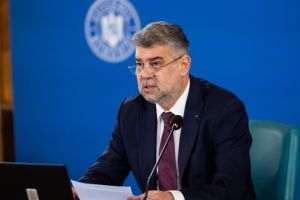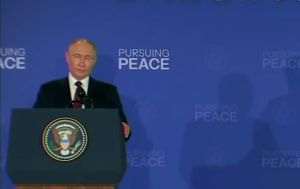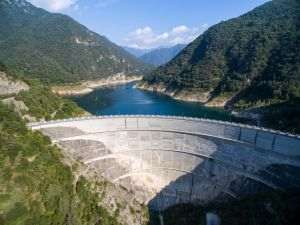• Bogdan Chiriţoiu, the president of the Competition Council, expects to announce the results of the investigation of the banks in autumn
• The investigation of the fuel market has been divided into two separate parts
Reporter: What is the current status of the investigation on the fuel market, which began in 2005? What is the Board missing to complete this investigation?
Bogdan Chiriţoiu: In real time, this investigation improved about two years ago ... The first announced inspection of the companies in the industry took place in September 2009, and the inspection team was also replaced at that time.
Reporter: What are the reasons that the investigation only began "working" in September 2009? Who is responsible for this?
Bogdan Chiriţoiu: Before 2009, the Competition Council was moving slower because it didn"t have any deadlines. The Council began "thawing" in 2007, it took a while before it got its act together, and until it learned how to make investigations ... it started getting more active in 2007-2008. The investigation of the fuel market will end this month, but the hearings won"t start until autumn.
Reporter: More to the point, what are the steps that still need to be taken to see this investigation completed?
Bogdan Chiriţoiu: After the investigation team completes its report, there will be internal investigations, especially from the legal department, because, if we go to court, and the Council always does, they are going to have to defend themselves. After that we will send it to Brussels, to a special unit which keeps in touch with the member states. The people in Brussels have the option of asking for additional information, from those involved in the investigation themselves, but the report shouldn"t stay with them for more than a month.
Reporter: Energy companies have a strong lobby in Brussels. How much will the feedback that you get from Brussels in your decision made here in Romania, on the result of the fuel investigation?
Bogdan Chiriţoiu: No one can say black is white and viceversa. The final decision lies with us, but feedback from Brussels is also important because the role of the Commission is to ensure compliance with the Treaties, and avoid that every state would interpret them in an individual manner. If the people in Brussels tell us that there is insufficient evidence for a certain claim and that a certain classification is not appropriate, we will take that into account.
Reporter: A Rompetrol official said, a few weeks ago, that he has received a confirmation from the Council that the scope of the fuel investigation has been expanded ... What does this mean, more specifically?
Bogdan Chiriţoiu: There are some procedural aspects that allow us to review all the clues that indicate a potential violation of the law. We have now separated the investigation of the fuel market into two parts: one will be completed in August, and the other will continue.
Reporter: Correct me if I am wrong: the role of the investigation of the fuel market was to establish whether the major Romanian oil companies had agreed on setting a specific price for fuel.
Bogdan Chiriţoiu: If they did agree. We suspect the violation of article 5 of the Competition law concerning the existence of an agreement. Essentially, the investigation was begun to see if instead of acting independently they"ve made certain decisions together. It may have been a decision on the price or not ... perhaps anything that had to do with their activity, such as splitting the market between them, discussions about the types of products etc.
Reporter: Does the part of the investigation which will be finalized this month concern the price fixing part or something else?
Bogdan Chiriţoiu: It concerns the suspicion of an agreement, at a certain time, on a specific subject. Since so many years have passed since the investigation started, there are several moments we are considering. I can"t say anything more than that, until the report is published.
Reporter: Then let"s move to the investigation concerning the banking sector. The NBR moved really quickly, it sanctioned several banks. What is the Competition Council doing?
Bogdan Chiriţoiu: The investigation is complete, and is at a procedurally advanced stage ... I don"t know if we are going to come out with it before or after the investigation of the fuel market. We are also talking to the banks and to the NBR.
Reporter: Did you notify the banks on the conclusion that you have reached?
Bogdan Chiriţoiu: No, no information left from us because not even the European Commissions has seen the result of the investigation yet ...
Reporter: Did Mr. Isărescu call you and ask about the conclusions of the investigation of the banking sector?
Bogdan Chiriţoiu: No, he didn"t. Obviously, we have formal and informal consultations with the National Bank, but nobody called to ask about this subject. We will make a decision soon, probably this autumn, it will depend on the feedback of the European Commission. At any rate, everything we are going to do will be done with the knowledge - I am not saying with the approval - of the National Bank.
Reporter: You stressed that your decision will not necessarily be made in agreement of the NBR. Is there a possibility that you would disagree with the NBR on this matter?
Bogdan Chiriţoiu: There is the theoretical possibility that we would be in disagreement, because just like the NBR has to comply with certain laws and procedures, we need to comply with ours. Since we are both institutions of the Romanian state, it is natural to cooperate. Whenever we deal with markets that have special regulators, such as the ANRE in the energy sector, the NBR in the banking sector or the ANCOM in the telecom sector, we rely strongly on their expertise because we can"t have in-depth knowledge of all the sectors.
Reporter: Did the NBR support you in your investigation of the banking sector?
Bogdan Chiriţoiu: We had meetings with the NBR and with the banks as well.
Reporter: Which banks?
Bogdan Chiriţoiu: We had meetings with the member banks of the Romanian Banking Association.
Reporter: There have been plenty of deadlines set for completing the investigation, but few were honored. What is the guarantee that this time, the two investigations will be completed in autumn, like you just said they would?
Bogdan Chiriţoiu: The investigation of the banking market will meet the deadline that we have set for ourselves. We think it is reasonable for it to take three years when investigating a market as big as the banking sector. We wanted to complete the fuel market investigation at the end of last year, but we have decided to postpone it for mid-2011 and to keep our "promise".
The target of our management is to complete the investigations which were begun more than three years ago and to reduce the average duration of the investigation to two years. The investigation of the fuel market would have been fine if it hadn"t lasted six years instead of three.
Reporter: Right now I would like to move to the capital market, and to present the following situation to you. Someone who trades using inside information is violating competition rules, according to the principles you defend. The Proprietatea Fund and the SIFs have people on the Boards of Directors of the companies in their portfolios, who, in certain cases have access to information that isn"t known to other investors. The Proprietatea Fund and the SIFs trade on the stock market, together with the other investors who do not have access to that kind of information. How does the Competition Council feel about this? Do you think this amounts to distorting competition?
Bogdan Chiriţoiu: As long as there is a special regulator, my first reaction would be that it is up to the CNVM to deal with any potential case of "inside trading". It could perhaps be viewed as distorting competition, but I think that issue could be solved using the capital market legislation. I can"t say if such situations fall under the jurisdiction of articles 5 and 6 of the Competition law, concerning agreements between companies or the dominant position.
Reporter: I would like to submit to your attention another topic related to the capital market. The Consortium which won the auction to intermediate the Petrom offering asked for a fee that was half of what the others had requested, and 3-4 times less than the biggest offer. Is this a situation where one of the participants resorted to dumping? Especially since the members of the consortium said that they asked for such a low fee to succeed in breaking into the Romanian market?
Bogdan Chiriţoiu: Working below costs is a problem only when one is abusing their dominant position and could drive their competitors out of business. When one is small, they can"t ruin their competitors.






























































